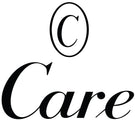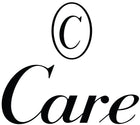10 Essential Handwashing Tips For A Stronger Defense
Handwashing is a simple yet powerful practice that can significantly reduce the spread of germs and diseases. As part of our commitment to promoting personal hygiene, Care presents ten essential handwashing tips to help you strengthen your defense against harmful pathogens. By following these guidelines, you can ensure a thorough and effective handwashing routine for optimal health and protection.
Use Hand Wash and Water
Hand wash and water are essential for effective handwashing. When combined, they create a powerful cleansing solution that can eliminate a wide range of germs and bacteria. Remember to use liquid or bar soap and lather your hands thoroughly.
Wet Your Hands First
Before applying Hand wash, wet your hands with clean, running water. The water temperature can be warm or cold—what matters is that you thoroughly wet your hands to facilitate proper lathering.
Scrub for At Least 20 Seconds
To ensure a thorough clean, scrub your hands with soap or hand wash for a minimum of 20 seconds. This duration allows the soap to break down and remove germs effectively. Singing the "Happy Birthday" song twice is an easy way to keep track of time.
Don't Forget the Back of Your Hands
While washing your hands, pay close attention to the back of your hands, as well as the spaces between your fingers and under your nails. These areas are often neglected but can harbor harmful bacteria.
Rinse Thoroughly with Running Water
After scrubbing your hands, rinse them thoroughly under clean, running water. This step helps wash away the soap and any remaining germs. Avoid using standing water, as it may contain bacteria.
Dry with a Clean Towel or Air Dryer
Once your hands are rinsed, use a clean towel to dry them thoroughly. If a towel is not available, air drying is an acceptable alternative. Remember, moisture can encourage the growth of bacteria, so ensure your hands are completely dry.
Cover Coughs and Sneezes Properly
Proper hand hygiene goes beyond washing your hands. When coughing or sneezing, use a tissue or your elbow to cover your mouth and nose. This practice prevents the spread of respiratory droplets that can carry harmful germs.
Wash Your Hands at Critical Times
Certain situations warrant immediate handwashing. Make it a habit to wash your hands before and after preparing food, before eating, after using the restroom, after touching surfaces in public areas, and after coughing or sneezing.
Keep Hand Sanitizer Handy
When soap and water are unavailable, using an alcohol-based hand sanitizer with at least 60% alcohol content is a suitable alternative. However, remember that hand sanitizer is not as effective as soap and water in removing certain types of germs, so use it when necessary but prioritize handwashing whenever possible.
Educate and Encourage Others
Spread the word about the importance of handwashing. Educate your family, friends, and colleagues about proper hand hygiene practices and encourage them to adopt these habits. By working together, we can create a healthier and safer environment for everyone.
Conclusion
Effective handwashing is a powerful defense against germs and diseases. By following these ten essential handwashing tips, you can strengthen your hand hygiene routine and contribute to a healthier community. We encourages you to make handwashing a priority with Care hand wash, not just for your own well-being, but for the well-being of those around you.


